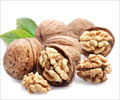Efforts taken to control exposure to nuts and reduce the risk of allergies are creating mass 'hysteria' and an 'overreaction', says a doctor .
Efforts taken to control exposure to nuts and reduce the risk of allergies are creating mass 'hysteria' and an 'overreaction', says a doctor on the online British Medical Journal.
He claimed that the measures imposed to reduce nut exposure are the result of irrational fears of nut allergies, which are becoming increasingly sensationalist.His article has cited examples like how a peanut on the floor of a school bus leads to evacuation and decontamination, as schools fear that the 10-year-old passengers might just eat it, reports the British Medical Journal.
In fact, many schools have declared themselves "nut free" by banning nuts, peanut butter, homebaked goods and any foods without ingredient labels.
Professor Nicolas Christakis from Harvard Medical School has said that there is no evidence that any of these extreme restrictions work better than more circumscribed policies.
In fact, he conceded that such measures are not worth the money and disruptions they create.
He claimed that more deaths occur in the US due to bee stings, lightening strikes, motor vehicle accidents and sport injuries than food allergies, but such issues do not incur such extreme reactions, such as calling for an end to sport.
Advertisement
The outbreaks of MPI often occur in small towns, schools and factories, and involve healthy people in a flow of anxiety, most often triggered by a fear of contamination.
Advertisement
Similarly, the extreme measures to reduce exposure to nuts are in turn fuelling anxiety in parents, leading to more sensitisation, and creating the very epidemic they are designed to stop.
A recent study has suggested that early exposure to peanuts actually reduces, rather than increases the risk of allergy.
Christakis concluded by calling for a levelheaded strategy to deal with this phenomenon before it spirals out of control.
Source-ANI
SPH















